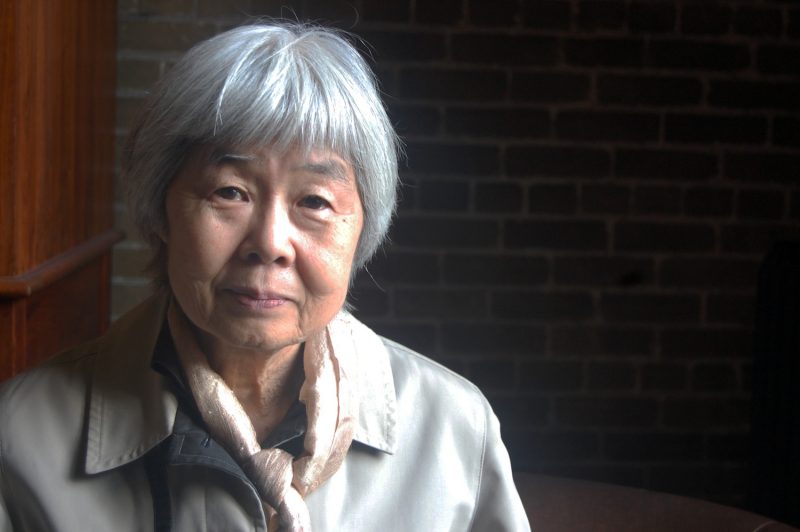#190 Multiculturalism beyond rhetoric
October 29th, 2017
REVIEW: The Minor Intimacies of Race: Asian Publics in North America
by Christine Kim
Champaign, Illinois: University of Illinois Press, 2016.
$30.00 (U.S.) / 978-0-252-08162-0
Reviewed by Helen Hok-Sze Leung
 Christine Kim examines the limitations of Canada’s official policy of multiculturalism by considering Maclean’s Magazine’s 2010 story about “too many” Asians on Canadian campuses and the decision to withdraw Canada’s new $100 bill in 2012 because it apparently depicted an Asian-Canadian woman scientist.
Christine Kim examines the limitations of Canada’s official policy of multiculturalism by considering Maclean’s Magazine’s 2010 story about “too many” Asians on Canadian campuses and the decision to withdraw Canada’s new $100 bill in 2012 because it apparently depicted an Asian-Canadian woman scientist.
According to reviewer Helen Hok-Sze Leung, Kim is “much more hopeful about the potential of creative works to address what multiculturalism policy has failed to do.”
Kim engages with the work and struggles of writers and artists in both Canada and the United States, including the work of the poet and artist Roy Kiyooka (1926-1994), the novelist Joy Kogawa, artists Cindy Mochizuki and David Khang (all of Vancouver), and the writer and poet Souvankham Thammavongsa of Toronto – Ed.
*
Over the past ten years, whenever I interview students for international scholarships or awards, they are inevitably asked this question: “How would you best represent Canada to the world?” Their answers are surprisingly uniform. Nine out of ten would refer to the policy of multiculturalism as representative of Canada’s national value.
Judging by the frequency of this response, which seems to spring so automatically from students regardless of their background, credentials, or interests, one may be tempted to conclude that Canada’s multicultural policy has been a resounding success.
Yet, despite this commonplace acknowledgment and celebration of multiculturalism, racial resentment has not disappeared. Channeled into fears of terrorism, anxiety about foreign real estate buyers, or resistance to religious accommodation, racial feelings continue to clash uneasily with multicultural feelings.
Christine Kim’s book The Minor Intimacies of Race: Asian Publics in North America, invites us to examine this tension: between the inclusive legal-political rhetoric of multiculturalism and the public feelings that persistently erupt around issues of race.
From the beginning, the book takes issue with the foundational limits of Canada’s multiculturalism policy. Arising from the need to address Quebec’s sovereigntist aspirations and foster a stronger sense of national unity, Pierre Trudeau’s multicultural policy of 1971 – passed as the Canadian Multiculturalism Act in 1988 — addresses racial difference by ensuring a citizen’s rights to heritage, ethnic languages, and religious freedom.
Kim argues that such a compartmentalization of difference fails to address painful histories of displacement and discrimination suffered by diasporic populations within the nation.
Moreover, she points out that the intricate and conflict-ridden colonial and Cold War histories that underlie most migrant identities are obscured by these identities’ supposed equation to a corresponding ethnic heritage and language.
To contextualize this critique of multiculturalism, the book details what it calls a history of “Canadian Orientalism.” Drawing on ideas from Edward Said’s seminal book Orientalism (1978) and recent works on Orientalist discourses in the U.S. by Asian American Studies scholars, Kim analyzes Canada’s role as a “minor empire” within nineteenth-century European colonialism and twentieth and twenty-first century American imperialism, its internal responses to racialized migration, its shifting and uneven external relation to Asia, and the impact of these national and transnational conditions on its multiculturalism policy.
By situating Canada’s national history within a global context, Kim sets the broader scene for the book’s subsequent exploration of unresolved racial traumas that haunt the current moment.
For example, her discussion in Chapter Two of the public debates triggered by Maclean’s Magazine’s controversial article in 2010 about “too many” Asians on Canadian campuses shows that contemporary “anti-Asian” feelings have their roots in complex histories of violence that had not been healed or resolved through the celebration of multiculturalism.
If The Minor Intimacies of Race is critical of the official policy of multiculturalism, which it shows has fallen far short of its promise, the book is much more hopeful about the potential of creative works to address what multiculturalism policy has failed to do.
The book explores how creative works, including performance art, visual arts, fiction, and poetry by prominent Asian Canadian artists and writers produce public sites where multicultural feeling — of fragility, trauma, exclusion, unbelonging — may be intimately shared and experienced.
Kim introduces her readers to an eclectic corpus of works: a performance piece by interdisciplinary artist Cindy Mochizuki, a novel by Joy Kogawa, the photography and installation of visual artist David Khang, the fiction of Susan Choi, and the poetry of Souvankham Thammavongsa and Roy Kiyooka.
Through thoughtful close readings, Kim shows how each of these artists and writers creates moments of multicultural interactions or transnational historical memories that connect their readers or audiences to forms of social intimacy that are absent from official discourses of multiculturalism.
While the book is a scholarly study that intervenes into numerous important intellectual debates on race, migration, nationalism, and multiculturalism, it also offers the general reader an introduction to literary and artistic works that provide alternative starting points for discussing the difficult issue of race and racism in the contemporary world.
And even though the book was published before the 2016 U.S. election, it is uncannily prescient about the persistence of racial logics as well as the public feelings these logics are currently triggering, with dire social consequences, south of our border.
The Minor Intimacies of Race is a nuanced and intimate book that is particularly timely and urgent in these times.
*
Helen Hok-Sze Leung is a Professor in the Department of Gender, Sexuality & Women’s Studies and the co-director of the Institute for Transpacific Cultural Research at Simon Fraser University. She is the author of Undercurrents: Queer Culture and Postcolonial Hong Kong (UBC Press, 2008) and Farewell My Concubine: A Queer Film Classic (Arsenal Pulp Press, 2010). She co-edits the Queer Asia book series (Hong Kong University Press) and serves on the editorial boards of Journal of Chinese Cinemas (Routledge), Transgender Studies Quarterly (Duke University Press), and Asian Visual Cultures (Amsterdam University Press). Her current research projects include a SSHRC-funded project on Transpacific Film Cities and a study of film sound and queer cinema.
[Book jacket artwork is by Cindy Mochizuki]
*
The Ormsby Review. More Readers. More Reviews. More Often.
Reviews Editor: Richard Mackie
Reviews Publisher: Alan Twigg — BC BookWorld / ABCBookWorld / BCBookLook / BC BookAwards / The Literary Map of B.C. / The Ormsby Review\
The Ormsby Review is a new journal for serious coverage of B.C. literature and other arts. It is hosted by Simon Fraser University. The Advisory Board consists of Jean Barman, Robin Fisher, Cole Harris, Wade Davis, Hugh Johnston, Patricia Roy, David Stouck, and Graeme Wynn.
“Only connect.” – E.M. Forster








Leave a Reply